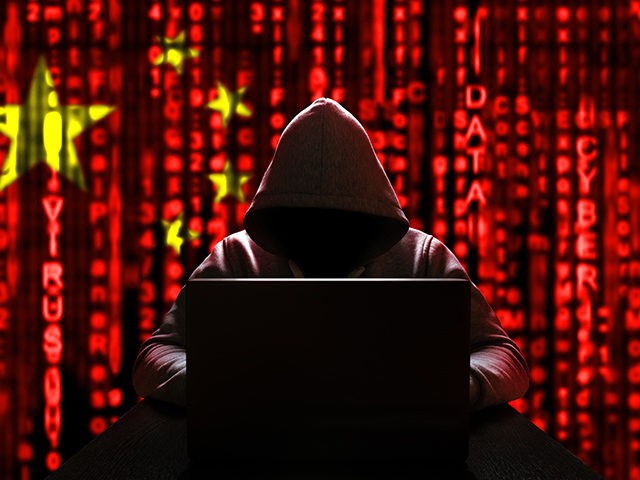The Chinese Foreign Ministry on Monday called for an international effort to tackle “the biggest threat to global cybersecurity,” the United States.
Foreign Ministry spokesman Wang Wenbin claimed it was the U.S., not China, that has been “stealing information and data around the world” while falsely posturing as the enemy of cyber espionage.
As reported by China’s state-run Global Times, Wang’s hyperventilations were prompted by Microsoft Vice President Tom Burt’s congressional testimony that his company has responded to between 2,400 and 3,500 requests for user data from U.S. law enforcement agencies every year for the past five years:
Asked about Burt’s testimony, Wang said that time and again, it has been demonstrated that it is the US itself that forces companies to open “back doors” and illegally obtain user data.
“The US is in fact the biggest threat to global cybersecurity,” Wang said, adding that for a long time, the US has used its technological prowess to spy on its own people and people around the world, steal all kinds of data, and infringe on all kinds of privacy.
[…] Meanwhile, the US is cracking down on other countries’ companies in the name of “protecting cybersecurity,” which fully exposes the US’ real intention to suppress competitors and preserve its internet hegemony, he added.
“We urge the international community to jointly expose and resist the US’ actions that undermine global cybersecurity and international rules,” Wang reportedly concluded.
The Global Times chipped in with concerns about the U.S.A. PATRIOT Act’s demands for Internet user data after the September 11 terrorist attacks, French complaints about Google and Amazon harvesting user data, Ireland’s complaints about Facebook harvesting user data, and Edward Snowden’s allegations against the National Security Agency (NSA).
Every nation in the world is wrestling with privacy concerns in the Internet era, but nothing Wang complained about comes close to the massive threat China poses in cyberspace. Chinese intellectual property theft, espionage, and surveillance are constant and overwhelming in scale, credible cybersecurity experts concur.
Microsoft’s Burt was indeed concerned about U.S. law enforcement gaining access to private data when he testified before the House Judiciary Committee, particularly the use of gag orders to keep tech companies from talking about the large number of subpoenas they receive – but if Burt was a Chinese tech executive, he would not be permitted to complain at all. Under Chinese law, there is no real barrier between “private” companies and the State. Every tech firm is at the complete disposal of the People’s Liberation Army.
Evidence suggests the Chinese Communist Party’s (CCP) grip on Big Tech is tightening. The Party gives orders to tech moguls in public now, no longer feeling any need to reassure Western businessmen by keeping fascism behind closed doors.
The year of the Wuhan coronavirus was also a year of panic that some of China’s richest and most popular moguls were becoming a threat to the power of dictator Xi Jinping. That threat has been decisively neutralized by the personal destruction of outspoken CEOs and antitrust crusades against the biggest Chinese internet companies.
China has integrated cyberespionage with its foreign policy, as teams of hackers target China’s geopolitical rivals and help Beijing play cards from under the table during major crises like the coronavirus pandemic. Cybersecurity experts are still tallying up the damage, and assessing the security risks, created by a massive attack on U.S. networking services linked to Chinese state-backed hackers.

COMMENTS
Please let us know if you're having issues with commenting.